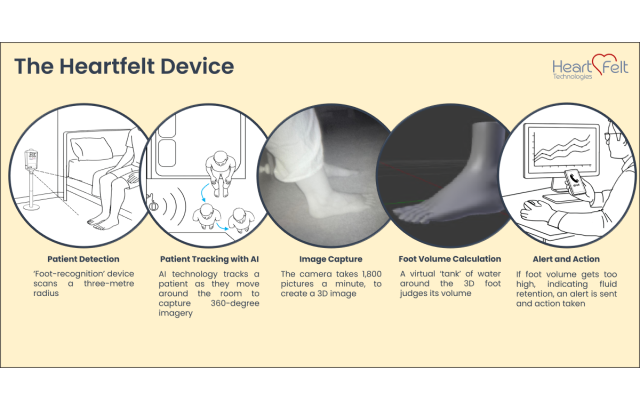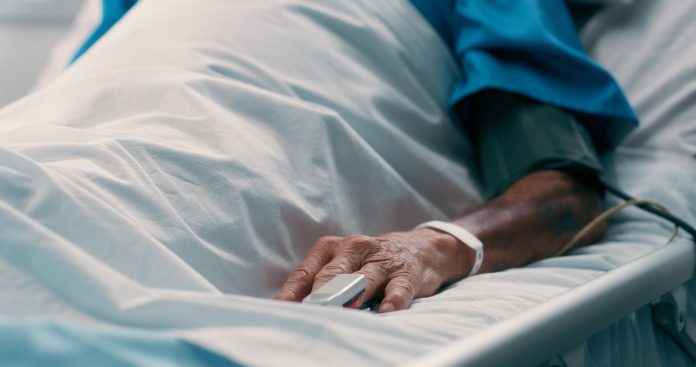New research from the British Cardiovascular Society conference in Manchester suggests that a home device that scans a person’s feet as they get out of bed could help detect early signs of worsening heart failure, potentially keeping them out of hospital
Over a million people in the UK have heart failure, and when the condition is not controlled with medication or lifestyle factors, it can lead to hospitalisation. A revolutionary AI device with ‘foot recognition,‘ which works similarly to face-recognition technology, could potentially flag when heart failure is becoming severe and life-threatening. This tool can alert the user 13 days on average before a person is hospitalised.
AI device can recognise oedema in patients
The device is wall-mounted and the size of a smart speaker. It detects a build-up of fluid in the feet and ankles, known as oedema, which is one of the ‘big three’ signs indicating that heart failure is becoming severe. Oedema occurs when the heart is not pumping blood around the body as it typically should.
The device, designed by Heartfelt Technologies, takes 1,800 pictures per minute of the foot and lower leg at multiple angles using AI detection of their precise position, then calculates the volume of fluid they contain.
The scanner alerts the heart failure team
The AI scanner can trigger an alert to a heart failure team when someone’s oedema is worsening, and they can be advised to take rapid action, like increasing their medication, to avoid an unwanted hospital trip.
Dr Philip Keeling, senior author of the study and a consultant cardiologist at Torbay and South Devon NHS Foundation Trust, said: “This device detects one of the big three warning signs for people with heart failure before they end up in hospital.
“Only about half of people admitted to hospital with heart failure currently get assigned an early review by a heart failure nurse who can check to see if they are suffering a harmful build-up of fluid because their heart is not working properly.
“Amid a shortage of heart failure nurses, a device like this can be like a virtual nurse, tracking people’s health.
“Living with heart failure can be overwhelming, with all the medications, medical tests and appointments, and the requirement to monitor your own health.
“This scanner, once it is installed, just automatically keeps an eye on you and alerts the health failure nurse, which is a huge relief.”

The foot scanner could significantly improve outcomes for at-risk patients
The researchers conducted the FOOT study, examining 26 patients across five NHS trusts who had been asked to weigh themselves regularly to monitor their heart failure.
Within the patients with the scanner in their homes for at least two weeks before it triggered an alert, three people were hospitalised with heart failure. The alerts were sent between eight and 19 days before their hospitalisation, giving the scanner an average prediction time of 13 days.
The foot scanner is plugged into the mains and automatically records real-time images. The tool only scans the legs to a height of 50 cm from the floor, capturing only the lower leg to ensure privacy.
Professor Bryan Williams, our Scientific and Medical Officer, said: “This small study suggests a simple device could significantly improve outcomes for at-risk patients with heart failure by keeping them out of hospital.
“This study is a good example of how technology might aid earlier interventions and treatment by allowing people to track a key sign of their heart health at home.
“Innovations with the potential to transform heart care in this way are a major part of the BHF’s goal to save and improve lives of people living with cardiovascular disease.”











